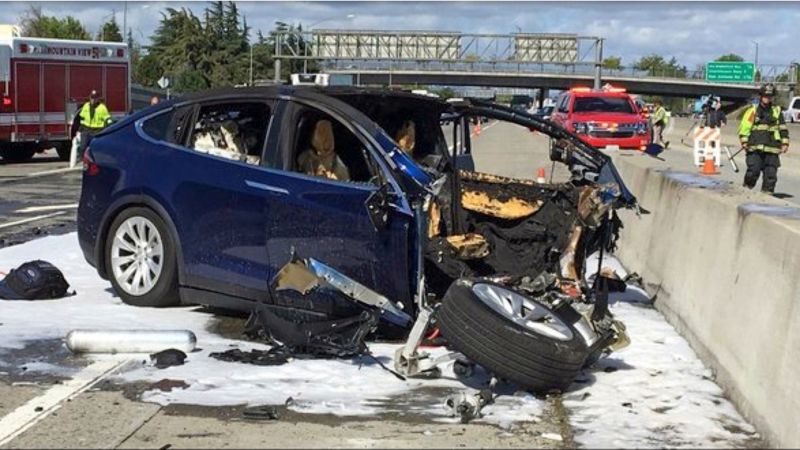Tesla is facing a wrongful death suit filed by the family of a former Apple engineer who died in a crash while the Autopilot feature was engaged. Walter Huang was killed when his Tesla Model X crashed in Silicon Valley in 2018 after Autopilot was engaged for nearly 19 minutes. The National Transportation Safety Board found that the Autopilot technology was in use when the car veered off the highway and struck a concrete median at 71 mph. The trial, which is set to begin, marks a crucial moment for Tesla as it faces allegations that the Autopilot technology is not as safe as advertised.
The Autopilot technology has been the subject of intense scrutiny, with investigations by the National Highway Traffic Safety Administration and the National Transportation Safety Board. Both agencies found that the Autopilot system can give drivers a false sense of security and may be easily misused in certain dangerous situations where it may not be able to safely navigate the road. Following these findings, Tesla recalled all 2 million of its cars in the United States to provide drivers with more warnings when Autopilot is engaged and to ensure they are paying attention to the road and keeping their hands on the wheel.
Tesla maintains that its Autopilot technology is safe to use when used correctly and can reduce fatalities. However, in the case of Huang’s crash, Tesla stated that his hands were not detected on the steering wheel for six seconds before the crash. The company believes that Huang was responsible for the accident because he was playing a video game on his phone while the Autopilot was engaged. Huang’s family argues that Tesla is at fault for marketing the Autopilot technology as self-driving software, knowing that it was not ready for widespread use and had flaws that could make it unsafe.
The lawsuit filed by Huang’s family claims that Tesla is beta testing its Autopilot software on live drivers, leading to tragic consequences such as Huang’s death. If the jury finds in favor of Huang’s family, Tesla could be liable for damages, which could be significant in wrongful death cases involving major companies. Despite the controversy surrounding its Autopilot technology, Tesla’s stock has been boosted by the promise of autonomous driving in recent years, making it the most valuable automaker in the world. However, Tesla’s stock performance in 2024 has been weak as it faces challenges related to the safety and effectiveness of its automated-driving systems.
Overall, the trial involving Tesla’s Autopilot technology highlights the ongoing debate over the safety and efficacy of automated-driving systems. While Tesla maintains that its technology is safe and can reduce fatalities when used correctly, critics argue that the company has oversold the capabilities of its Autopilot technology. The outcome of the trial could have significant implications for Tesla and the future of automated-driving systems in the automotive industry.


